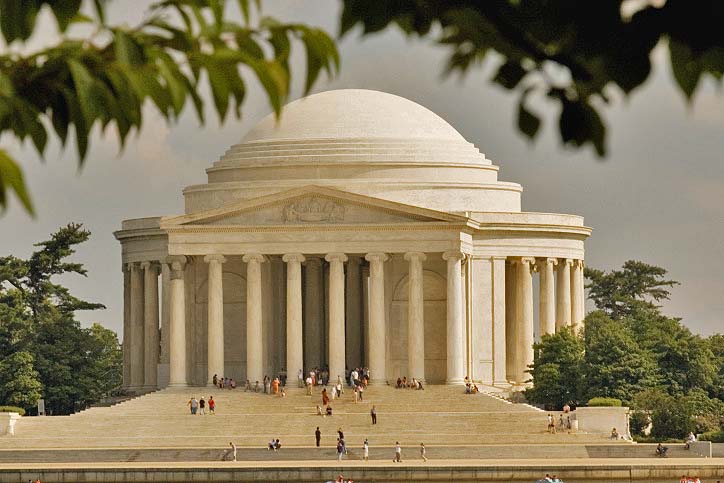|
|
LITR 4231
Early American Literature 2010 research post 1 |
|
Jeff Derrickson
The Burgeoning Acceptance of Deism
I must confess I was absolutely astounded to discover that most of the founders were Deists. In truth, in all the history classes Ive taken over the years, I had never heard of Deism at all. It was quite refreshing to find that educated folk during the period of the Enlightenment turned away from the choking Puritan influence of religion that was depicted in The Crucible and Sinners in the Hands of an Angry God in order to form a more perfect union.
American Deists differ from their English counterparts in that the Americans present their ideas as superior to revelation, whereas the English simply reject it. Even though the concept of Deism was inherited from English philosophers and scientists such as John Locke, Anthony Ashley Cooper, and Isaac Newton, I still needed to find some connectivity concerning how Thomas Paine could write a document such as The Age of Reason, and not be hanged immediately. After all, he was only a century removed from Salem's religious paranoia, and fifty or so years removed from Jonathan Edwards's religious solidarity.
There exists a document called Sermon on Natural Religion by a Natural Man, printed in 1771, by an anonymous author who wrote under the pen name The Naturalist. Due to its rudimentary nature, the document gives no indication that the Naturalist had a background of higher learning. The main body consists of the definitions of significant Deistic terms, such as nature, which he defines through the use of an obscure dictionary of John Rider, Bibliotheca Scholastica. The Naturalist then defines Deism based upon his own theories and conclusions, at one point arguing that a person who relies on nature and logic is, by nature, a Deist.
The release of this document garnered the reaction I had grown to expect from early America: the governor of New York assumed the authors identity and offered twenty pounds for his capture. The falsely accused was Ethan Allen of the Green Mountain Boys militia, an incendiary figure due to his resistance of New Yorker authority in New Hampshire.
The direct change seems to come in Boston circa 1772, when a disgruntled merchant refused to follow Thomas Young in an effort to overturn British decrees imposed by Massachusettss governor. Young responded by printing his entire religious creed in the Massachusetts Spy newspaper. The article focuses on what Young believes in, which is the existence of one God who rewards those who seek him, and chooses not to highlight that which is not believed by Deists, the supernatural aspects of creation. This article would become the first recorded publication of Deism in which the author is identified.
Though Young's public display of bravery did nothing to dissuade his detractor, the notoriously conservative Samuel Adams leapt to Young's defense. Adams accused the accuser of hypocrisy on the grounds that he was attacking Young's political actions through his religious beliefs. Young would go on to inspire the Boston Tea Party and co-write Reason: The Only Oracle of Man with Ethan Allen, which openly criticized organized religion and proposed Deism as a possible alternative. The situation of 1772 highlights both the acceptance and the resistance to the idea of separating church and state, which hitherto was unthinkable. The stout beliefs of the Naturalist and Thomas Young led them to pave the way for religious freedom in America, as Thomas Jefferson and Benjamin Franklin would adopt Deistic ideals themselves and eventually into the Constitution.
References:
Aldridge, A. Owen. "Natural religion and deism in America before Ethan Allen and Thomas Paine." William & Mary Quarterly 54.4 (1997): 835. Humanities International Index. EBSCO. Web. 21 Apr. 2010.
Allen, Brooke. "Our Godless Constitution." Nation 280.7 (2005): 14-20. Academic Search Complete. EBSCO. Web. 21 Apr. 2010.
http://www.iep.utm.edu/shaftes/
http://americanrevwar.homestead.com/files/allen.htm
http://www.christiandeistfellowship.com/dryoung.htm
|
|
|
|


